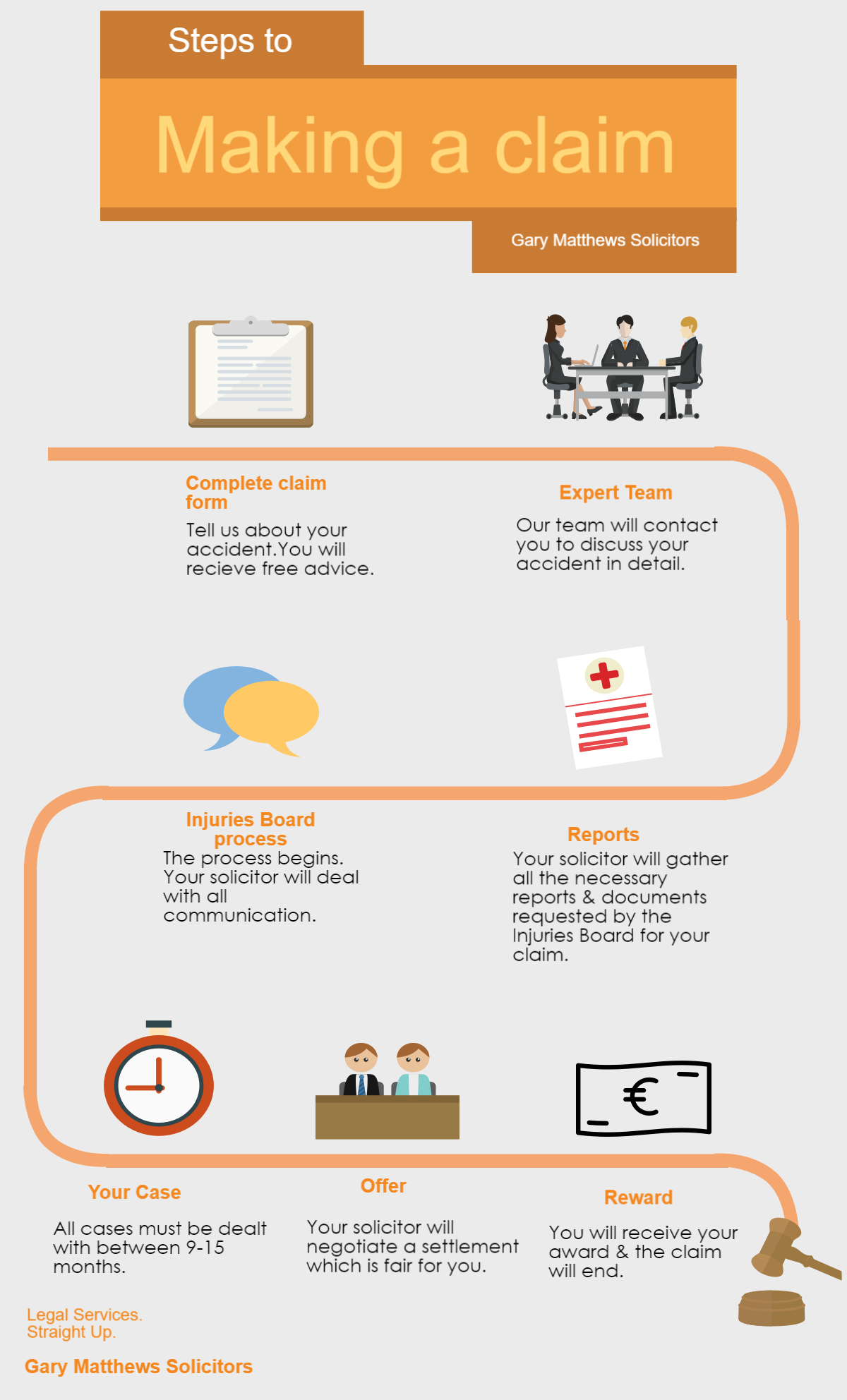Many people are familiar with the basics of personal injury cases. They understand “pain & suffering,” and the fact that the party at fault should pay their medical bills and any out of pocket expenses. One thing all claimants need to prove to any Court is the fact that they are suffering and have sustained a loss of a normal life. Believe it or not, keeping a diary following a personal injury is the way to do this.
Why Keep a Diary
Even if y ou are in a relatively minor car crash and only see a doctor or physical therapist for a month or so, by the time your Solicitor obtains all the medical records and bills, submits them to the insurance company, and there is an offer on the table, it is months after the crash. Do you remember how many times you mowed your lawn last year or how many times you washed the car last year? Exactly! Since most of us are so busy we can hardly remember what is for dinner or what we have to pick up at the shop on the way home tonight, we can hardly be expected to recall specific limits on our activity from months, or years ago. If court proceedings have to be issued, the earliest it will go to trial is a year or year and a half after the date of the incident. In complex cases, this could be as much as 4 years or more after the actual incident occurred. How can you remember your medical treatment and limits on your activity from that long ago? A diary is a great way to do this!
ou are in a relatively minor car crash and only see a doctor or physical therapist for a month or so, by the time your Solicitor obtains all the medical records and bills, submits them to the insurance company, and there is an offer on the table, it is months after the crash. Do you remember how many times you mowed your lawn last year or how many times you washed the car last year? Exactly! Since most of us are so busy we can hardly remember what is for dinner or what we have to pick up at the shop on the way home tonight, we can hardly be expected to recall specific limits on our activity from months, or years ago. If court proceedings have to be issued, the earliest it will go to trial is a year or year and a half after the date of the incident. In complex cases, this could be as much as 4 years or more after the actual incident occurred. How can you remember your medical treatment and limits on your activity from that long ago? A diary is a great way to do this!
What to Keep in My Diary
I tell my clients to keep it simple. Some prefer elaborate excel spreadsheets, while others like to handwrite their diary. Emails work too. Whatever your preferred method or format, the things I tell everyone to include is the following:
- Things you cannot do at all following the incident (and for how long you could not do them);
- Things you can do, but which you experience pain or are limited in how well or for how long you can perform them;
- Keep a note of the general chronology of your doctor visits, so, if you are asked at a consultation/court 2 years later whether you had an MRI of your shoulder before or after your son’s wedding, you’ll remember, or at least be able to piece it together;
The general rule is to focus on activities of daily living (ADLs). Think about a woman with a shoulder rotator cuff tear, who, following surgery, is unable to apply mascara, put her hair in a ponytail, or drive a manual car. Think about the man with the back injury who, despite having received the dream trip to St. Andrew’s golf course in Scotland from his wife, cannot golf at that sport’s birthplace due to his injury. This is the personal details you need to record.
What NOT to Keep in My Diary
Do not post things that have nothing to do with your case. Do not talk about extraneous things or things that might prove embarrassing if someone else did see the diary.
Who Sees Your Diary?
Generally, only you and your Solicitor will see this. There is a trend now where defence solicitors are now seeking diaries during the discovery process. However, most judges are firmly against this as of writing. But, just in case this changes, the general rule is never to record anything in your diary which is not 100% accurate.
When do I Use My Diary?
Take your diary with you for all your medical appointments and attendances with your Solicitor and/or barristers. Highlight all the important points and make sure that you tell your medical and legal team how your incident is impacting your daily life.
About Social Media
If you are like most of us, you have an account with Facebook, Instagram, possibly Twitter, and Linkedin, to name just a few major platforms. Defence Solicitors are increasingly successful in obtaining information from these areas from injured plaintiffs. If you go on vacation to Spain while claiming your back is too injured from the car crash to work, but post a photo of you on a jet ski, expect that to be used against you. For that reason, the advice I give clients is do not post anything concerning the incident, their injuries, or their health, from the time they are injured until their case is over.
Finally
Personal Injury cases are much more complicated than most people realise, and require the talents of an experienced Solicitor. To help your Solicitor, documenting your injuries is something you should be doing and if you have not started a diary, do so today.
What we do.
At Gary Matthews Solicitors we put you, the client first.
There are strict time limits for submitting a claim and if the application is incomplete it will probably be rejected. Most people are not familiar with submitting claims to the Injuries Board and therefore forget to include essential information for their claim. This may and does result in a claimant not getting the full value of their claim or in the worst case their claim being struck out .
Once you enlist the help of Gary Matthews Solicitors in making your personal injury claim, we will handle the case from then on. We will be able to explain how long your claim should take to settle and give you a rough idea of how much compensation you may be entitled to.
We offer Legal Advice to ensure you are fully aware of the Injuries Board Process and what you must do. For Advice you can complete an Enquiry Form here.
Our expert team have also arranged our most frequently asked questions, offering an overview of the claims process. Click the image below to view the full range of questions.



